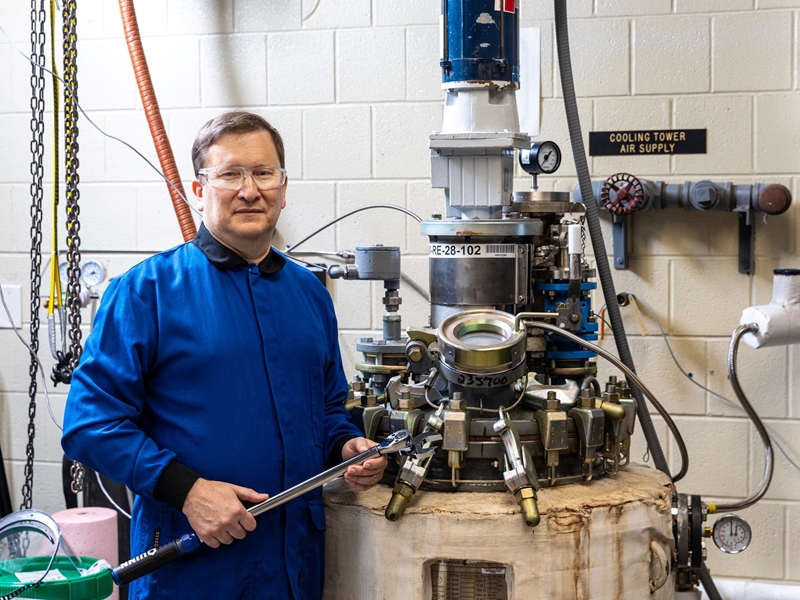
[ad_1]
Bob Beitle, a distinguished scholar and educator, has made important contributions to the sector of biochemical engineering. Joining the Ralph E. Martin Department of Chemical Engineering on the University of Arkansas in 1993, Beitle’s journey has been characterised by relentless pursuit of information, revolutionary analysis, and a dedication to empowering college students.
Over the course of his profession, Beitle has achieved a number of milestones. In 1998, he was awarded tenure and promoted to the place of affiliate professor, adopted by one other promotion to the rank of professor and to his present place of senior affiliate vice chancellor for analysis and innovation. He presently holds the Jim L. Turpin Professorship in Chemical and Biochemical Separations. His ascent in academia is a testomony to his distinctive dedication to analysis and instructing.
Bob Beitle is an lively member of a number of skilled organizations, together with the American Institute of Chemical Engineers and the American Chemical Society (or ACS). Through his involvement in these societies, he has contributed to the development of biochemical engineering by sharing data, exchanging concepts and collaborating with consultants within the discipline.
One of Beitle’s main analysis pursuits lies within the discipline of biochemical engineering, particularly within the areas of bioseparation and fermentation. Bioseparation refers back to the strategy of separating organic supplies from advanced mixtures. This is a crucial step in numerous biotechnological purposes, together with the manufacturing of prescription drugs, biofuels and enzymes.
His experience in fermentation, however, has been instrumental in advancing the manufacturing of worthwhile compounds utilizing microbial techniques. Fermentation is a organic course of the place microorganisms, similar to micro organism or yeast, are used to transform uncooked supplies into helpful merchandise. This course of has widespread purposes within the manufacturing of enzymes, therapeutics, biofuels, antibiotics, and natural acids.
Among Beitle’s most up-to-date achievements is a groundbreaking patent on LAMP PCR. Polymerase Chain Reaction (PCR) is a extensively used method in molecular biology to amplify particular DNA sequences. Loop-Mediated Isothermal Amplification (LAMP) is an rising variant of PCR that allows the amplification of DNA at a relentless temperature with out the necessity for pricey thermocyclers.
Beitle’s patent, in contrast to conventional PCR strategies, doesn’t require thermal biking, which makes it quicker, easier, and cheaper. This know-how has transformative implications for fields similar to medical diagnostics, infectious illness detection, and genetic analysis. Its effectivity and accuracy have the potential to revolutionize numerous purposes that depend on DNA amplification.
Beitle’s analysis group has graduated a major variety of college students who’re employed by massive pharmaceutical corporations like Pfizer, Briston-Myers-Squibb, Amgen, and BioGen Idec and reagent suppliers like Pel-Freez Biologicals in Rogers, Arkansas. His spectacular journey from an formidable graduate scholar to professor on the college has been marked by groundbreaking analysis, exemplary instructing, and a robust dedication to advancing the fields of biochemical engineering. As Beitle continues to encourage college students and colleagues alike, it’s clear that his dedication to advancing science and know-how will go away an enduring legacy on this planet of chemical engineering and past.
[adinserter block=”4″]
[ad_2]
Source link
